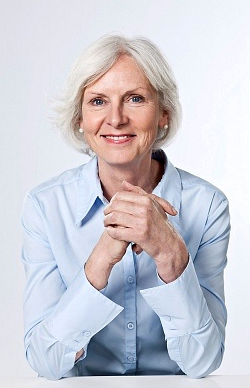 There was no better time to pay attention to the unique needs of women than National Women’s Health Week, celebrated May 8th through 12th, 2016 (NWHW). Women’s Health America founder Marla Ahlgrimm celebrated by watching her food choices and spending time outdoors. In this short discussion, Ahlgrimm talks about NWHW and offers a few suggestions on how women across the country can participate in 2017.
There was no better time to pay attention to the unique needs of women than National Women’s Health Week, celebrated May 8th through 12th, 2016 (NWHW). Women’s Health America founder Marla Ahlgrimm celebrated by watching her food choices and spending time outdoors. In this short discussion, Ahlgrimm talks about NWHW and offers a few suggestions on how women across the country can participate in 2017.
Q: What is National Women’s Health Week?
Marla Ahlgrimm: National Women’s Health Week is a week-long event that spotlights women’s healthcare needs at all ages. The US Department of Health and Human Services Office on Women’s Health sponsors the event through its website WomensHealth.Gov.
Q: When is the best time for women to start paying attention to their health?
Marla Ahlgrimm: Today! Regardless of age, women should pay attention to their health. Mothers can instill positive habits in their daughters from birth onwards by breastfeeding, if possible, choosing whole foods, and letting daughters see their moms exercise and take care of self. A mom is her daughter’s first role model, after all!
Q: Does the National Women’s Health Week Pledge really make a difference?
Marla Ahlgrimm: Absolutely, and I highly recommend taking the pledge and recommitting every day of the year. Women can promise to practice healthy lifestyle choices – like limiting alcohol use, eating more fruits and vegetables, and asking their doctors which vaccinations are right for their ages.
Q: Who are the NWHW ambassadors?
Marla Ahlgrimm: Celebrities and women’s health experts from across the country have volunteered their time and efforts to promote National Women’s Health Week. 2016’s supporters included Anne Wheaton, Director of the Pasadena Humane Society; actresses Julie Jones, Lauren Potter, and Daisy Fuentes; Jennifer Arnold, a Neonatologist and co-star of TLC’s hit reality show Little Couple; and Marion Nestle, a New York University professor of Nutrition and Author of What to Eat.











 In this brief Q&A session,
In this brief Q&A session, 






 Marla Ahlgrimm has co-authored two ground-breaking books,
Marla Ahlgrimm has co-authored two ground-breaking books,